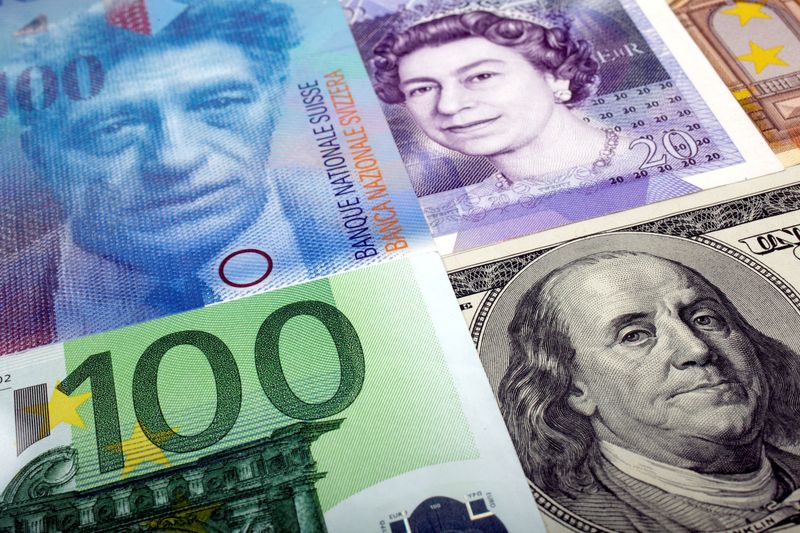Nagging recession and interest rate worries had Europe's markets spluttering on Thursday, and the pound started to sag as Britain looked to put last month's disastrous fiscal experiment behind it with an austere-looking budget.
Trading got off to a choppy start as optimism about Siemens' earnings and that the European Central Bank might slow its rate hikes gave way to the selling that dogged Wall Street and Asia overnight.
That was driven by renewed Fed policymaker talk that rates could shoot up further. It meant the dollar was fractionally higher after a recent 7% slump, though Europe's lower government debt yields suggested the bond markets were largely indifferent.
Sterling went from $1.193 to $1.1877 against the greenback in early trading in London ahead of an 1130 GMT budget plan from the country's new finance minister Jeremy Hunt. He and Prime Minister Rishi Sunak hope it will restore confidence after former PM Liz Truss' unfunded tax cut plans caused widespread panic, sent the pound to an all-time low and forced Truss to quit after just 50 days in charge.
DoubleLine portfolio manager Bill Campbell said the pound's rebound over the last month meant the budget's likely spending cuts were probably already priced in, though and Britain's experience may well be mirrored elsewhere, especially with recessions looming and an ongoing energy crisis.
"The market has basically told the UK government that it is not gong to accept anything too aggressive on the fiscal stimulus front," Campbell said.
"It seems like we are moving into a fairly risky environment," he added, referring to likelihood that EU countries will try to frontload their borrowings next year. "I think it's highly likely that we could see some repeats of what happened in the UK".
Overnight in Asia grim signals from Micron Technology about excess inventories and sluggish demand sent chipmaker stocks sprawling.
On Wall Street, stronger-than-expected U.S. retail sales had suggested the Federal Reserve was unlikely to relax its battle with inflation.
That fuelled concerns about the economic outlook, with the U.S. Treasury yield curve remaining deeply inverted in Tokyo trading and suggesting that investors are braced for recession.
Hong Kong's Hang Seng Index (.HSI) fell 1.15%, with its tech stocks (.HSTECH) slipping more than 4% at one point. Mainland Chinese shares also declined, with blue chips there (.CSI300) falling 0.5% having ripped 10% higher this month.
Japan's Nikkei (.N225) lost 0.35% and South Korea's Kospi (.KS11) dropped 1.4%, each led by declines in heavyweight chip players.
Overnight, the Philadelphia SE Semiconductor Index (.SOX) slumped 4.3% after Micron (MU.O) said it would reduce memory chip supply and make more cuts to its capital spending plan.
The tech-heavy Nasdaq (.NDX) slumped 1.5% while the S&P 500 (.SPX) slid 0.8%.
However, e-mini futures indicated some respite at the reopen, pointing to barely any movement on the Nasdaq or the S&P .











